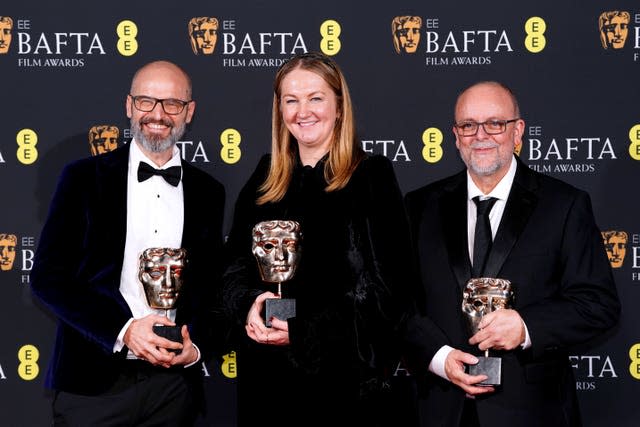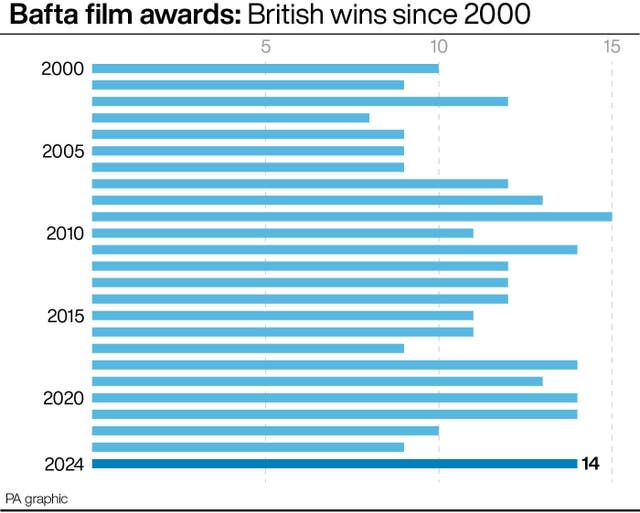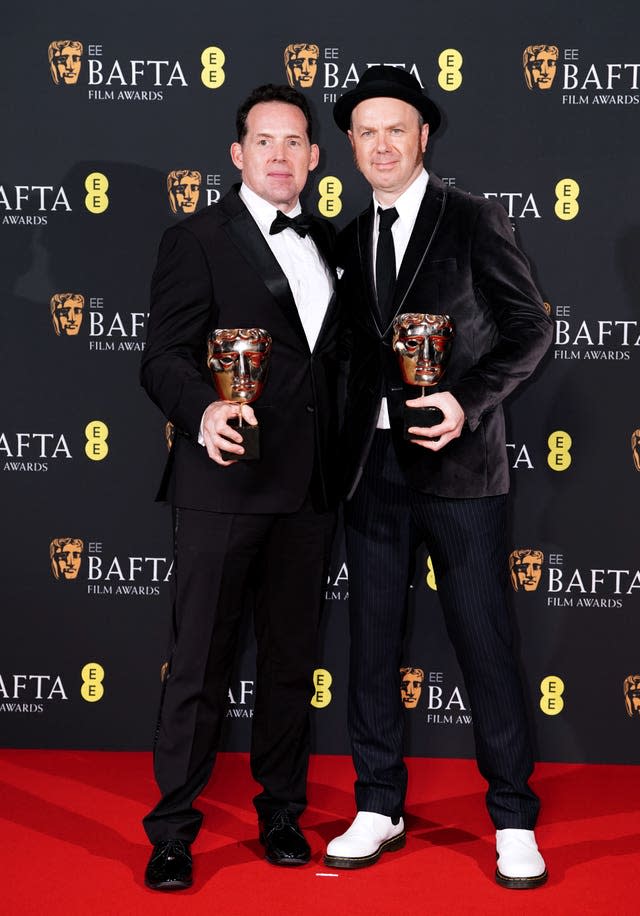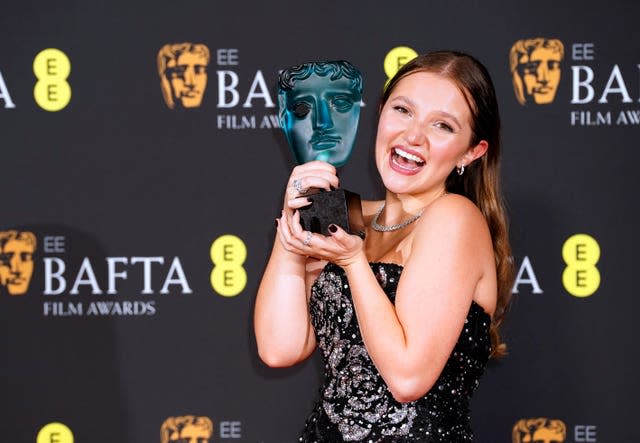Success behind the camera helps UK to strong Bafta performance
A clutch of awards celebrating achievement behind the camera saw the UK enjoy one of its strongest performances at the Baftas for several years – and helped make up for no wins in any of the main acting categories.
The dark fantasy comedy Poor Things came away with five awards in total, four of which involved British talent.
Veteran make-up artist Mark Coulier was part of the team who won best make-up and hair for the film, along with fellow UK colleagues Nadia Stacey and Josh Weston.

It was Coulier’s second Bafta in as many years, having been among the winners in 2023 for best make-up on the film Elvis.
Poor Things also saw UK success for Simon Hughes, who picked up the award for best visual effects; Shona Heath and James Price, who were on the team that won best production design, and Holly Waddington, who took best costume design.

British-born filmmaker Christopher Nolan enjoyed his first ever Bafta win, being named best director for his blockbuster biographical drama Oppenheimer.
The movie, a US-UK co-production, also picked up the award for best film.
Polish historical drama The Zone Of Interest bagged three awards: best film not in the English language (the first time since 2004 that this award has been won by a UK production); best British film; and best sound, going to British audio designers Johnnie Burn and Tarn Willers.

None of the “big four” acting categories was won by British talent: the second year in a row this has happened, and only the seventh such outcome since the current format of the Baftas was established in 1969.
The gongs instead went to three Americans (Emma Stone, best actress for Poor Things; Robert Downey Jr, best supporting actor for Oppenheimer; and Da’Vine Joy Randolph, best supporting actress for The Holdovers) – plus Cillian Murphy, the first ever Irish winner of best actor (Oppenheimer).
It was already guaranteed that there would be no wins for the UK in the categories of best actor or best supporting actor, as no British performers had been nominated for these awards: the first time since 1976 this has happened in the same year.
Better news for the UK came with the rising star award, which is voted for by the public and was won by Mia McKenna-Bruce, who appeared most recently in the coming-of-age film How To Have Sex.

In the other British-only categories, Jellyfish & Lobster took the prize for best British short film; Crab Day was named best British short animation; Savanah Leaf picked up the award for outstanding debut by a British writer, director or producer, for her film Earth Mama; and June Givanni won the award for outstanding British contribution to cinema.
Overall there were UK wins in 14 Bafta categories, the highest number since 2021 (also 14) and up from nine wins in 2023.
The most UK wins so far this century was 15 in 2009, when Slumdog Millionaire picked up six separate awards.

 Yahoo Movies
Yahoo Movies 
